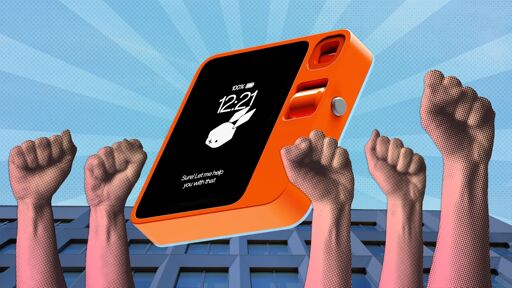Can the people advocating for AI art provide any examples of anything human-generated that is artistically interesting? I suspect not and that’s a big part of why they’re impressed with AI art.
Like, they’d probably say “The Mona Lisa” because it’s well known to be Great Art, and then their AI can draw them in the style of the Mona Lisa, ergo it has generated Great Art.
















Get your own domain name. You can have Apple or Gmail or Proton host it, but if you ever decide to leave them all your emails still work.